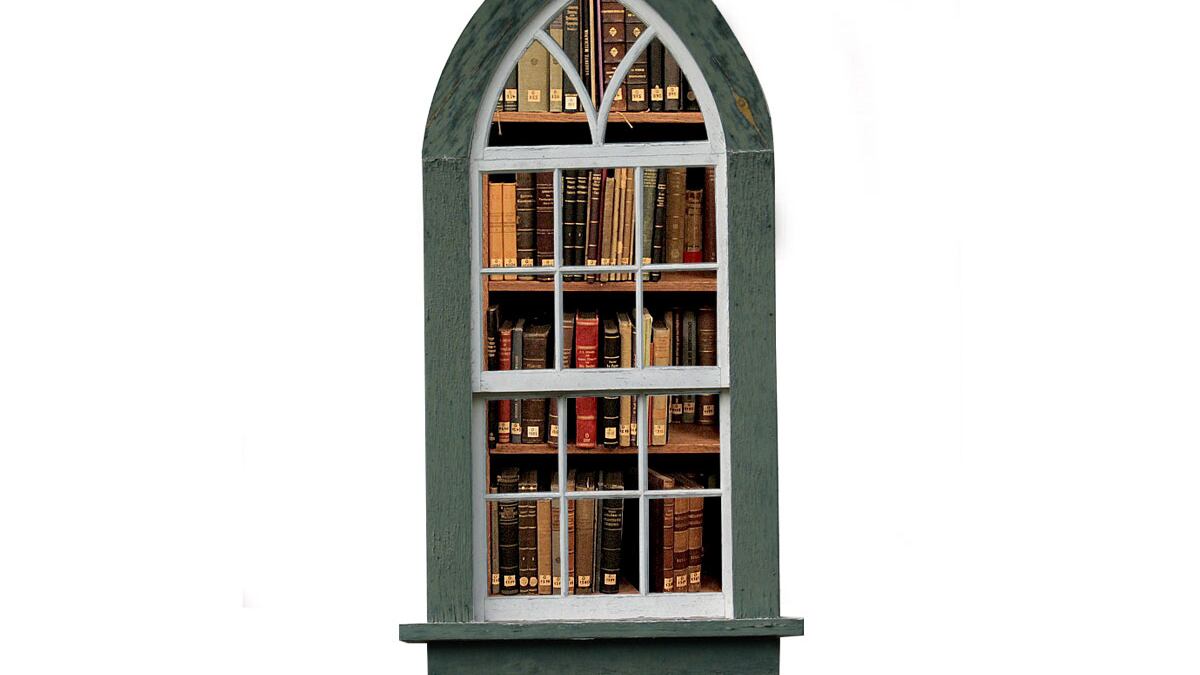Daniel Rollings will no longer set foot in the Salem Public Library.
That's because last week, elected officials in Oregon's capital city approved a two-year lease to house the library in a building owned by Salem Alliance Church, which preaches being gay is a sin.
Rollings, 39, is gay. He's president of the Salem chapter of Parents, Families and Friends of Lesbians and Gays. And he says he "no longer feels comfortable" at the library.
"That [church] is very anti-LGBTQ," Rollings says. "City Council has said they'll do what they can to make the space welcoming, which I think is a good start. But it doesn't excuse the fact they're paying almost half a million dollars in rent to an organization that continues to spread a message of hate."
On July 22, the Salem City Council voted to move its book collection into a vacant, 16,500-square-foot building owned by Salem Alliance Church. The city will operate the library there while it completes seismic retrofitting on the current library.
That decision was made against the advice of the Salem Human Rights Commission, a volunteer task force that advises the city, and a petition signed by more than 200 people urging councilors to find another building.
Tricarico Schwartz, a member of the commission, was one of the opponents to testify against the lease agreement, which will pay the church $19,000 a month.
"I will always support the freedom of religion, and I will always support the freedom of speech," Schwartz said at a July 22 City Council meeting. "But the ideas expressed by that church do harm people. The freedom of speech and religion does not protect you from the consequences of that speech. One of those consequences for this church should be not getting half a million dollars of city funds."
The question of whether religious beliefs should influence public policy is an old one—Oregonians with long memories will recall efforts by a group called the Oregon Citizens Alliance to bar LGBTQ people from anti-discrimination protections as recently as 1992.
But the quarrel over the Salem Public Library poses a different question: When the city conducts public business in a religious space, is it shutting out people the church shuns?
Salem Alliance Church is attended by more than 3,000 worshippers weekly. Its views on homosexuality are clear.
"Any kind of sexual activity outside of a marriage with a male and a female is something we should not be engaged in," pastor Steve Fowler said from the pulpit on July 3, 2016. (The sermon was later included in a church podcast.) "If you're engaged in same-sex sex, if you're using a same-sex relationship in that way, you need to run, you need to book it."
Executive pastor Robb Childs tells WW the church is conservative but not discriminatory.
"The people who attend our church do take the traditional stance that marriage is reserved between one man and one woman," he says. "People extrapolate that to say we discriminate against the LGBTQ community."
Childs says the church won't have any input in the operation of the library, meaning it can't dictate which books are made available for loan or what kind of events are held there.
"We're trying to be a good neighbor and help the city out with a need," he says. "We're not trying to dictate what the city does with the library."
The Salem City Council has been looking for a building to house the library temporarily since January.
Jim Lewis, one of the councilors on the library bond committee, says the city looked at about 20 properties and the church-owned building was "not only the best choice, but really the only choice." He says the city plans to work with the Human Rights Commission on "how the library can be a welcoming place."
"Any time a group is concerned, you have to pay attention to that," Lewis says. "But personally, I believe this issue has been amplified by a couple of what I'll call bloggers who have been pounding on this church for months."
Jim Scheppke, a former state librarian who retired eight years ago, was behind the bond measure to retrofit the Salem library. He was also one of the citizens to testify against the city's decision to lease the church building.
"I feel a certain sense of ownership of this whole project," says Scheppke, who is not queer. "I talked to a lot of people I know in the LGBTQ community who are very upset about this, and I said, 'This is bad because it divides the community and alienates a segment of the community, and that's the last thing a library should be doing.'
The move could have negative effects that long outlive the terms of the lease, Scheppke adds.
"I think this is the cheapest alternative, and [the city is] going to take it regardless of the damage it's going to do," he says. "I'm certain there will be many, many people who won't use the library in the church building. It'll leave hard feelings for a long time."

